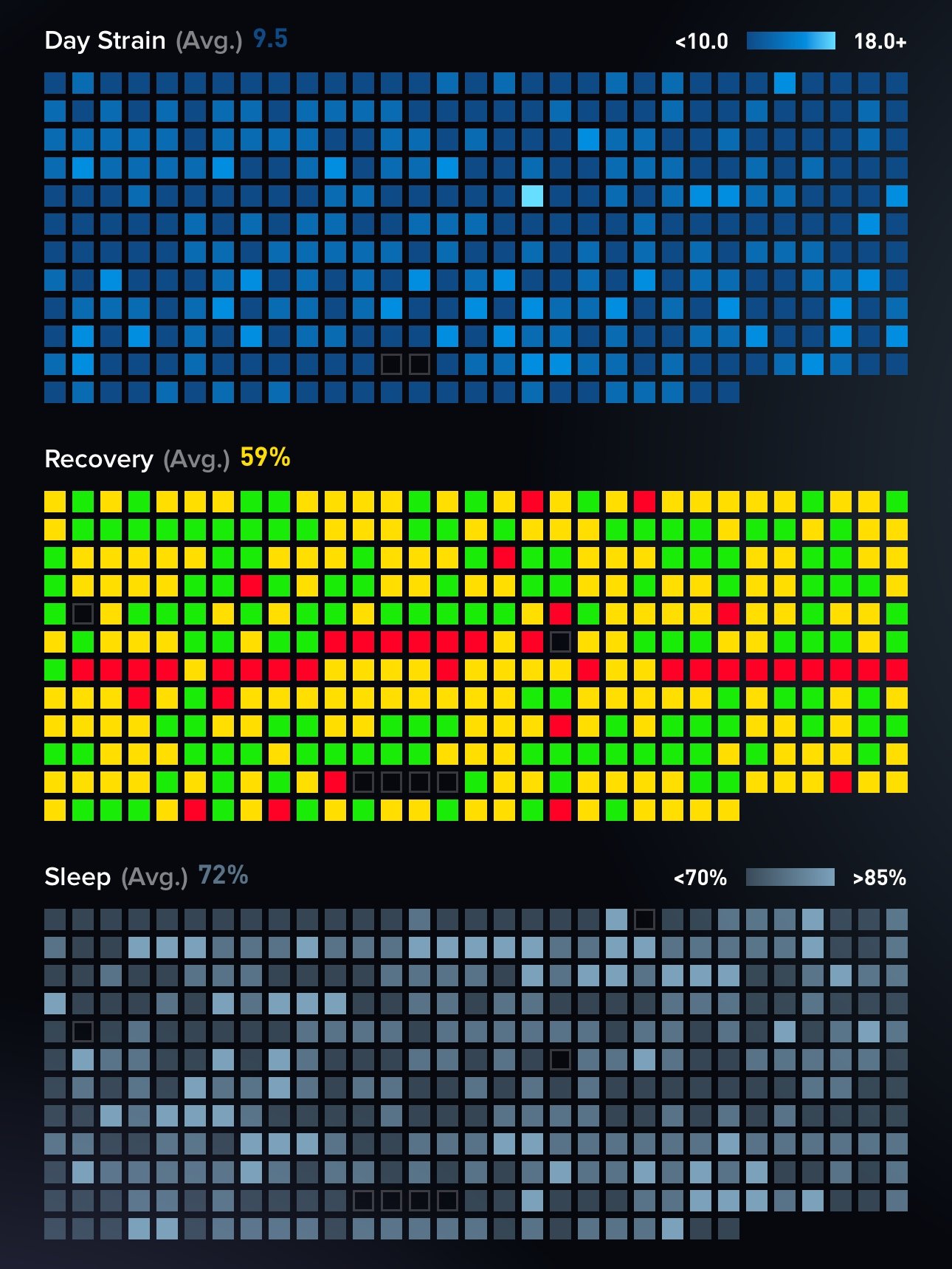Data Reliance & Intuition
Reclaiming Balance in a Data-Driven World
Over the years, I’ve had a unique and deeply personal relationship with data and technology—one that has evolved, shaped, and even tested my sense of self. It began with curiosity. I was fascinated by the capabilities of early tools like the FuelBand and Fitbit, which provided data about my physical activity, sleep patterns, and overall health. Devices like Garmin, WHOOP, and VitalNeuro later enriched this journey, offering deeper insights into physical and mental performance. This relationship was fueled by a love of discovery—learning more about my body through new technology, understanding and pushing boundaries, and marveling at the power of feedback loops to unlock better performance.
At its best, data was a source of joy and learning. It illuminated areas of potential, revealed patterns I hadn’t noticed, and sharpened my understanding of how small habits could produce big results. But somewhere along the way, the balance shifted.
From Curiosity to Dependency
What began as an empowering relationship subtly became something else—a quiet dependency. I realized that my confidence in answering a simple yet profound question, “How do I feel?” had begun to waver. Instead of trusting my instincts, I started relying on what the data told me about my well-being. If the numbers suggested I was stressed or fatigued, I would believe it—even when I felt fine. Conversely, if the data indicated I should feel great but didn’t, I doubted my own experience.
This erosion of trust in my own intuition wasn’t immediate; it crept in over time. And it wasn’t just about health metrics. It reflected a broader cultural trend: our growing reliance on data to validate what we already know—or to override it.
The Cost of Over-Reliance
As I became aware of this shift, I started to notice its effects not only on my mental well-being but also on my ability to stay present and engaged. My confidence faltered, my decision-making became more tentative, and even my capacity for listening—to myself and to others—suffered.
Ironically, the very tools designed to enhance performance and clarity had begun to cloud my connection with my inner compass. It became clear that the over-reliance on data had tilted the balance too far.
Reclaiming the Balance
Acknowledging this was the first step toward change. I began to scale back on the technology I used to monitor my life. I chose fewer tools and used them with greater intention, focusing on insights that genuinely added value without overshadowing my natural intuition.
What I found was remarkable. With less noise from the data, my quality of thought improved. My confidence returned, not because I had more information but because I learned to trust myself again. My ability to listen—to my own needs, to others, and to the subtleties of life—became sharper.
A Broader Reflection
This experience mirrors a challenge we face collectively. As a society, we’ve become increasingly data-driven in how we work, make decisions, and navigate change. While data can be a powerful ally, it has limits—especially when it comes to understanding human emotion, intuition, and fulfillment.
Even the most advanced AI lacks the ability to feel. It cannot replicate the subtle, instinctive wisdom that emerges from lived experience. As we integrate more technology into our lives, the challenge lies in maintaining balance: leveraging data as a tool without letting it override our innate ability to navigate the complexities of life and leadership.
Returning to Joyful Discovery
Reflecting on this journey, I’m reminded of why I fell in love with data and technology in the first place: curiosity, discovery, and growth. By reclaiming balance, I’ve rediscovered that joy—not in the numbers themselves but in what they reveal when used wisely. The fulfillment I sought from data has come full circle, now grounded in intuition and the confidence to trust my own experience.

